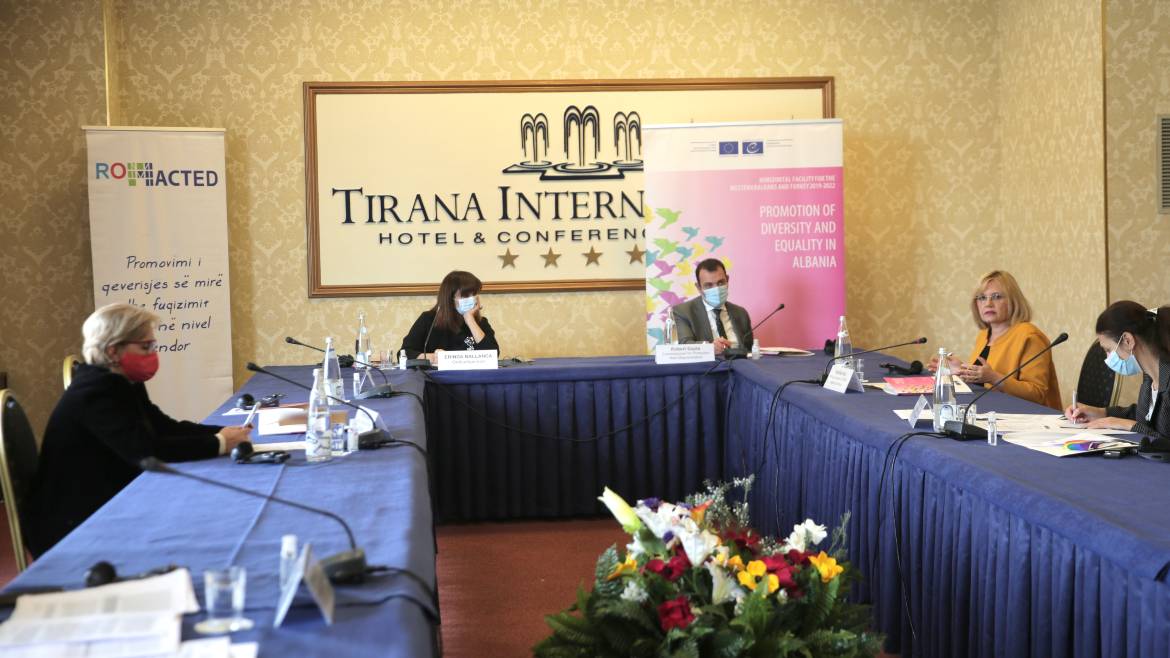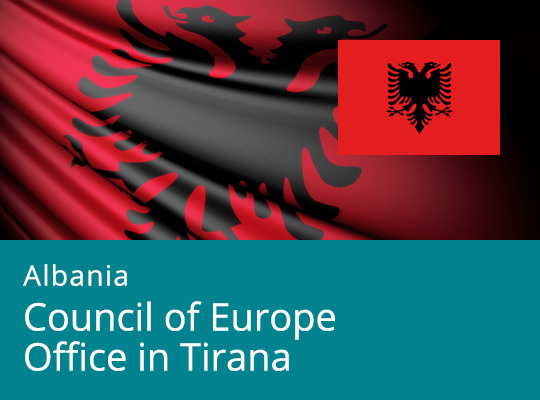The Council of Europe’s European Commission against Racism and Intolerance (ECRI) in co-operation with the People’s Advocate and the Commissioner for the Protection from Discrimination of Albania, organised on 28 October 2020 in Tirana, an online Round Table on “Combating racial discrimination and intolerance in Albania”.
The meeting organized in the framework of the European Union and Council of Europe joint Programmes: Horizontal Facility for the Western Balkans and Turkey 2019-2022” – Action on Promoting Diversity and Equality in Albania and “ROMACTED: Promoting good governance and Roma empowerment at local level”, aimed at discussing with key central and local authority officials, international organisations, vulnerable groups, national minorities and civil society representatives, the progress and key matters surrounding the follow-up given to the recommendations contained in ECRI last monitoring report on Albania, adopted in June 2020.
The event was opened by Christian Ahlund, Former Chair of ECRI and rapporteur on Albania who welcomed the participants, recognized the positive change while tackling some of the key challenges in the efforts to fight racial discrimination and intolerance in Albania. “I was positively struck last year by the great achievements Albania has accomplished over two decades and I congratulate all of you on this. Nevertheless, as in all Council of Europe member states, there are problems and challenges in the area of racism, racial discrimination and intolerance that remain and which need to be addressed.", stressed Ahlund.
Erinda Ballanca, People Advocate in Albania was focused on the importance of following up and implementing key recommendations included in the ECRI Reports and the consideration to be given to key European strategic documents in the process of drafting of domestic strategic documents and the provision of necessary funds from the State budget for the implementation of these Plans.
Robert Gajda, Commissioner for the Protection from Discrimination during his address tackled the importance of the policies and public initiatives in fighting racial discrimination and intolerance. “The role of the state in this process is to create through policies, actions and consistent initiatives, real opportunities for the most disadvantaged groups so that such opportunities are effectively put in place and do guarantee substantive equality”, added Gajda.
Agron Tare, Deputy Minister for Europe and Foreign Affairs in his address confirmed the commitment of the authorities in Albania in fighting discrimination and ensuring equality. “The Albanian Government remains committed in fulfilling the international obligations, having as a priority the implementation and improvement of the legal framework”, emphasized Tare.
The meeting followed with the thematic sessions, where the participants tackled key challenges related to the follow-up given to the recommendations contained in ECRI’s 2020 report such as the development and application of the legal framework for combating racism and racial discrimination; as well as on the solutions for the housing problems of Roma and Egyptians communities.
This event aims at contributing positively to the national debate on combating racial discrimination and intolerance in Albania, as well as raising awareness among the general public about these crucial issues.
Since the adoption of ECRI’s fifth report on Albania on 19 March 2015, progress has been made in a number of areas, however ECRI expressed its concern about key issues, such as additional measures to fight hate speech and discrimination especially against LGBTI persons and Roma, proper implementation of the LGBTI Action Plan 2016-2020 and National Action Plan for the integration of Roma and Egyptians 2016-2020 as well as further actions in the fight against bullying and extremism in schools, especially for the most vulnerable groups.
In Albania the European Union and Council of Europe joints initiatives “Promoting diversity and equality in Albania” and ROMACTED are working with the authorities to address national minority protection, promotion of LGBTI rights and combating hate speech in line with the standards and recommendations set by the Council of Europe.
- - - - - - - - - - - - - - - - - - - - - - - - - - - - - - - - - - - - - - -
ECRI is a human rights body of the Council of Europe, composed of independent experts, which monitors problems of racism, discrimination on grounds of ethnic origin, citizenship, colour, religion and language (racial discrimination), as well as xenophobia, antisemitism and intolerance, prepares reports and issues recommendations to member States. For more information on ECRI: www.coe.int/ecri .
- - - - - - - - - - - - - - - - - - - - - - - - - - - - - - - - - - - - - - -




